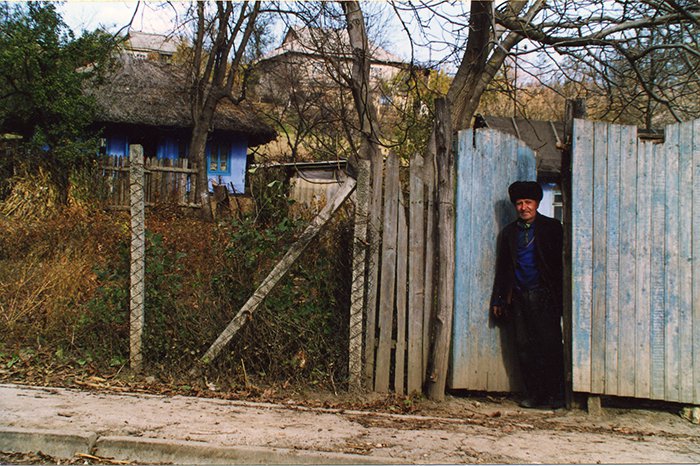Economic commentary on pension reform in Moldova
14:34 | 05.12.2016 Category: Economic
Chisinau, 5 December /MOLDPRES/- Economic commentary by MOLDPRES State News Agency
The government announced an ambitious reform of pension system.
The reform of pension system will make this system more equitable and sustainable, and the state will have the opportunity to pay decent pensions so that the retirees should be able to live due to this money. If we do not make this reform, the pension system will fall in 2-3 years in Moldova, Prime Minister Pavel Filip said.
The public pension system is a ticking time bomb that will explode sooner or later due to migration of working-age people, high rate of informal employment and payment of wages in envelopes, as well as accelerated aging of the population. Over one third of people will be more than 60 years till 2050, double against the current level, under the estimations by experts. The ratio between tax payers and beneficiaries of the pension dropped to 1.2 in 2014, and the situation will continue to worsen while the number of elderly people is growing faster than the number of people of other age categories. The minimum level, under the international practices, is 4 tax payers to 1 retiree.
Massive emigration puts enormous pressure on pension system. The number of those residing abroad is comparable to the number of employees. The effect of demographic decline is felt. Hundreds of millions of lei does not come annually in the social fund, each year more money is taken from the state budget to meet social obligations. These are not the only problems. “We have the most sophisticated and discriminatory pension system,” social and development policy expert Viorica Antonov said. The calculation formula is very sophisticated and is not sustainable. The second problem is that we have many privileged groups in the pension system earning much higher pension than most people. Some of them receive a pension amounting to 10,000-20,000 lei, and 83 per cent of retirees have a pension that does not cover the subsistence minimum.
What does the Labor, Social Protection and Family Ministry propose? The draft sees a new formula for calculating the pension that will make possible to create a new service (online computer) meant to offer citizens the possibility to calculate the future pension.
Also, it is scheduled to value the revenue that has been made since 1999 at the level of current income. It is a review of pensions that under the Labor Ministry, would lead to increase by 5-25 per cent in pensions.
It is proposed to unify the methodology for calculating the social insurance pensions for certain categories of citizens, MPs, government members, civil servants, local representatives, prosecutors and to exclude “special stage” from the public social insurance system in order to cut inequities in the system. These priorities were meant to appreciate the merits to the state. Yet, given the transition to market economy, these principles lose topicality.
The reform means increase in retirement age from 57 to 62 years for women and respectively, from 62 to 65 for men, as well as length of employment for women from 30 to 33 years, and for men from 33 to 36 years. The average contribution stage for women is by 25 per cent lower than the one of men, accordingly the women have a lower pension compared to that of men.
Increase in retirement age is the cornerstone of reform. Trade unions, opposition, as well as others are vehemently opposed. A good part of the population will fail to reach retirement age, the life expectancy of elderly people is decreasing, the reform opponents say. Statistics data show another situation. Life expectancy is increasing. In 2015, the average life in Moldova represented 71.5 years, including for men -67.5 and for women – 75.5 years. Secondly, the increase in retirement age will be gradually made during ten years. Compared to the countries of Central and Eastern Europe, the retirement age in Moldova is at the low limit for men and the lower one for women.
It is true that both the retirement age and life expectancy in Moldova is lower than in the European countries. Most countries of Central and Eastern Europe plan to increase the retirement age for next 10 years, especially, it is scheduled to equal the retirement age of women to the one of men. Wherever the pension reform is initiated, the resistance will be great. If taking into account the increase in retirement age, the government should take this decision after public debates with the participation of people. “It is important that the government should ensure an adequate communication for the people to understand that the pension reform is not related to only increase in the retirement age, “ Expert-Grup executive director Adrian Lupusor said.
The reform however had to be made yesterday – the day before yesterday. If until recently the Moldovan citizens could expect a pension of at least half of the salary, now it is 27 per cent. “If no measures are taken, then in 2030, this figure will drop to 14 per cent, which means that the citizens of Moldova will receive a pension of seven times lower than their current wage. In this case, it will be simply impossible to maintain living standards,” World Bank Country Manager Alex Kremer said.
“Increase in the retirement age is a difficult decision that is taken at political level, but which is comparable to a visit to the dentist – how much more is postponed the visit, the toothache is more stressful”.
No the World Bank or International Monetary Fund require us this reform. The pension system is on the verge of bankruptcy and only a reform can save – is spoken a long time mainly at level of local and foreign experts. What was missing was the political will to initiate reform.
Reporter V. Bercu

